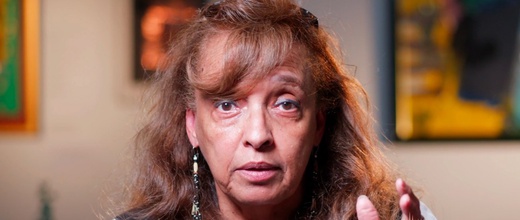In a world often characterized by division and discord, the teachings of the Bahá’í Faith present a clarion call for unity and equality. At the heart of these teachings lies an imperative to confront and eradicate the insidious forces of racism. Achieving this noble aim demands not only a philosophical commitment but also a specific, actionable repertoire of behaviors that, when adopted collectively, can engender profound societal transformation.
To navigate this complex terrain, it is beneficial to employ the metaphor of a garden. Just as a garden flourishes when diverse plants coexist in harmony, so too can a society thrive when its members embrace a shared commitment to equality. The cultivation of such a social garden requires intentional nurturing and diverse, concerted efforts. Below, we explore specific behaviors that serve as the seeds of this transformative garden.
1. Active Listening
Active listening transcends the mere act of hearing; it is a profound engagement with others’ experiences and emotions. This behavior fosters empathy and understanding, forming the bedrock of meaningful dialogue. When individuals practice active listening, they validate the lived experiences of marginalized groups, creating a space where voices are amplified rather than muted. By prioritizing this practice, we cultivate an atmosphere of respect, allowing rich interpersonal connections to flourish.
2. Continuous Education
A commitment to lifelong learning serves as a beacon in the journey toward racial equality. Engaging in self-directed education about racial histories, systemic injustices, and cultural nuances expands one’s worldview. Furthermore, this intellectual pursuit empowers individuals to challenge inherited biases and misconceptions. The act of educating oneself not only enriches personal understanding but also equips advocates with the tools necessary to engage in arduous discussions about race with confidence and credibility.
3. Reflection and Self-Assessment
Like a gardener meticulously surveying the health of their plants, engagement in self-reflection is essential to personal growth. Individuals must confront their biases, prejudices, and privileges with courage and honesty. This introspective process is not merely an academic exercise; it requires a sincere commitment to change. Through regular self-assessment, one can identify patterns that perpetuate inequity, leading to more informed and equitable actions within one’s community.
4. Courageous Advocacy
Advocacy demands not only passion but also a courageous heart. Active participation in the fight against racism involves speaking out against injustices, both in public spheres and private conversations. It is imperative to challenge discriminatory behaviors and systems, even when such actions may evoke discomfort. The essence of courageous advocacy lies in willingness to confront uncomfortable truths and to stand up for what is right, regardless of the potential backlash.
5. Building Bridges Through Dialogue
Constructing bridges between different racial and ethnic groups is paramount in dismantling the walls of misunderstanding and hatred. Organizing and participating in dialogues that encompass diverse perspectives can reveal commonalities where differences abound. Such gatherings allow for the sharing of stories, fostering a reciprocal recognition of humanity that transcends superficial divisions. Moreover, intentional dialogue can illuminate shared goals, paving the way for collective action.
6. Embracing Diversity
In nature, a vibrant ecosystem thrives on biodiversity, allowing unique strengths to coalesce into a unified whole. Similarly, embracing diversity—whether in the workplace, community, or broader society—contributes to innovative problem-solving and creativity. This behavior entails not only the acknowledgment of differences but also the celebration of them. By championing diversity, we lay the foundation for a more inclusive society that values the contributions of all its members.
7. Creating Safe Spaces
Just as certain plants seek the refuge of shaded areas to thrive, individuals from marginalized backgrounds need safe spaces to express themselves and their grievances. Creating environments where open communication is encouraged and supported is paramount. Such spaces enable individuals to share their experiences without fear of persecution or dismissal, thus facilitating healing and understanding. This behavior underscores the necessity of fostering an inclusive atmosphere where all can flourish.
8. Leveraging Resources for Collective Action
The metaphor of a garden can be extended to resource allocation, where individuals collaborate to pool their knowledge and skills for the greater good. Mobilizing resources—be it time, funds, or expertise—can amplify the impact of initiatives designed to combat racism. By aligning efforts and fostering collaboration among diverse groups, the momentum for change can be significantly accelerated, leading to more effective and sustainable solutions.
9. Celebrating Progress
A garden is not merely a collection of plants; it is also a testament to growth and transformation. Similarly, acknowledging and celebrating progress within the realm of racial equality is crucial for motivation and morale. Recognizing both individual and collective achievements reinforces commitment to the cause and inspires continued action toward justice. Celebrations serve as potent reminders of the positive changes that can stem from collective efforts and shared values.
In conclusion, the path to solving racism is neither swift nor uncomplicated. However, by engaging in specific behaviors that echo the essence of Bahá’í teachings, individuals can contribute to the flourishing of a more just and unified society. Through the cultivation of empathy, education, advocacy, and inclusive dialogue, we move closer to realizing a world where the diverse tapestry of humanity is not only acknowledged but celebrated. The transformation lies in the hands of each individual—together, we can nurture a garden that thrives on unity, equity, and love.
